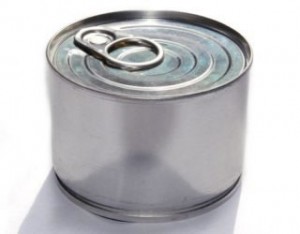Steel Food Can Carbon Footprint Improves
 Carbon footprint has improved for the conventional steel food can, according to research from European Metal Packaging (Empac).
Carbon footprint has improved for the conventional steel food can, according to research from European Metal Packaging (Empac).
Along with its supply chain partners, Empac carried out a study evaluating the environmental performance of the 425ml steel food can. Results showed that in the decade between 2000 and 2010, the carbon footprint of the can has on average reduced by 30 percent. This proves that the metal packaging sector is aligning with the European Union’s resource efficiency and conservation road map to achieve more with less.
This cut in carbon footprint has been achieved through a sustained reduction in the can’s average weight delivered to consumers, along with a significant rise in rates of steel recycling. Since the millennium, six percent has been dropped from the can’s average weight while there has been a 44 percent improvement in steel’s average recycling rate in Europe. With developments in both recycling rates for steel and weight cuts, further double-digit savings can be reached in the medium term.
Can Carbon Footprint
As more sustainable, stronger, safer and lighter, today’s food cans will continue to play a responsible and significant role in the food chain.
Back in 2010, Empac designed an interactive scorecard to calculate products including metal cans’ carbon footprint. The scorecard provided consistent answers to regulator, retailer and consumer questions regarding metal packaging’s environmental impact. It tracked carbon emissions right through from raw material mining all the way to manufacture and customer delivery.
Updated frequently as advances were made to further reduce emissions, the scorecard provided carbon dioxide level estimates for different cans with different recycling rates.
Gordon Shade, Empac chief executive said the scorecard would help provide unambiguous and fact-based information on the sector.
He also claimed that metal had the best recovery and recycling rates out of all packaging materials.
“Metal packaging has strong sustainability credentials and we are constantly looking at how we can improve this position and reduce the carbon footprint of metal cans even further,” he said.
In 2007, the worldwide recycling rate for steel cans was 68 percent.

































